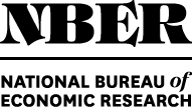
|
SI 2019 Macroeconomics Within and Across Borders
Organized by Mark A. Aguiar, Patrick J. Kehoe, and Mark L.J. Wright July 15, 2019 Royal Sonesta Hotel, Edwin H. Land Blvd., Cambridge, MA |
| Monday, July 15 | |
| 8:30 am |
Coffee and Pastries
|
| 9:00 am |
Global Banks and Systemic Debt Crises
Discussant:
Alessandro Dovis, University of Pennsylvania and NBER |
| 10:00 am |
Break
|
| 10:15 am |
The Optimal Maturity of Government Debt
Discussant:
Pierre Yared, Columbia University and NBER |
| 11:15 am |
Break
|
| 11:30 am |
Optimal Monetary Policy in Production Networks
Discussant:
Nobuhiro Kiyotaki, Princeton University and NBER |
| 12:30 pm |
Lunch
|
| 1:30 pm |
Monetary Policy and Sovereign Risk in Emerging Markets
Discussant:
Paulina Restrepo-Echavarria, Federal Reserve Bank of St. Louis |
| 2:30 pm |
Break
|
| 2:40 pm |
Asset Prices and Employment Fluctuations
Discussant:
Fernando E. Alvarez, University of Chicago and NBER |
| 3:40 pm |
Break
|
| 3:50 pm |
A Global View of Creative Destruction
Discussant:
Kurt Mitman, Institute for International Economic Studies |
| 4:50 pm |
Break
|
| 5:00 pm |
Imperfect Risk-Sharing and the Business Cycle
Discussant:
Anmol Bhandari, University of Minnesota and NBER |
| 6:00 pm |
Adjourn
|
|
Suggestions on Format
Introduction: Please keep these to 5 minutes. And the audience should refrain from essentially all questions. Clarifying Questions: Welcome at all times. If you do not understand something, it is highly likely that other people do not as well, so please ask. Deeper Questions: These typically have much higher value added when brought up after the main results have been given, so that the audience understands the framework the author is using and the author has narrowed down the question to a precise one. Anticipatory Questions: Questions such as ``Will this feature be important’’ or ``Are you going to look at x’’ are typically very low value added. It is much better to let the author put up the results and then ask such questions. |